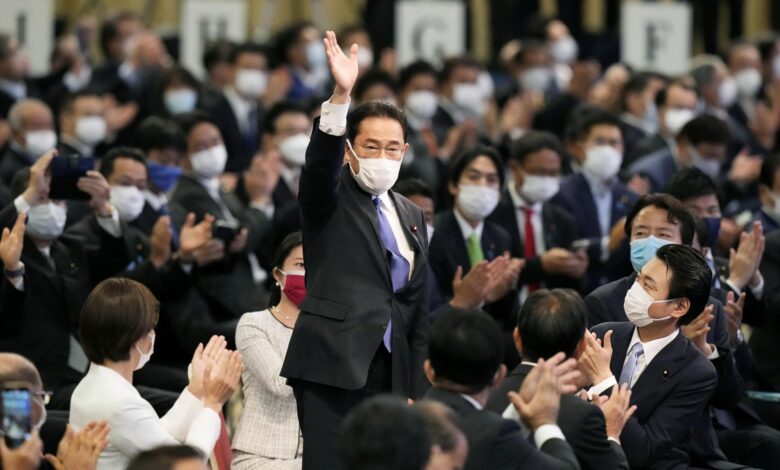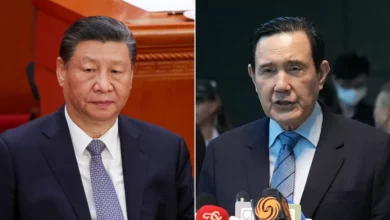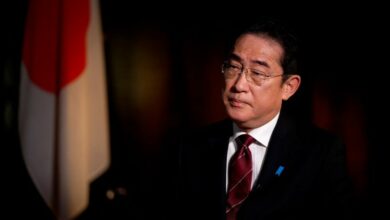
TOKYO, Sept 29 (Reuters) – Japan’s ruling Liberal Democratic Party (LDP) on Wednesday anointed former foreign minister Fumio Kishida as its next leader in a victory for the party’s establishment that virtually ensures he will become prime minister within days.
Although he enjoys only moderate popular support, Kishida was backed by some of the party’s heavyweights, allowing him to stop the momentum of rising star Taro Kono, the minister in charge of the coronavirus vaccine roll-out.
It was not clear if Kishida’s bland image could spell problems for the LDP in a general election due by Nov. 28. Nevertheless, he focused on populist issues – such as the need to forge a new kind of capitalism and ease divisions of wealth – in his first news conference.
“We will strive to achieve economic growth and distribution,” of wealth, he said, adding there was no way to achieve growth without distributing wealth.
Kishida, who succeeds unpopular Prime Minister Yoshihide Suga who did not seek re-election as party leader after just one year in office, is almost certain to become premier at a parliamentary session on Monday because of the LDP’s majority in the lower house.
He is expected to form a new cabinet and reshuffle the LDP executive in early October.
Media, quoting LDP executives, reported that the lower chamber will likely be dissolved in mid-October with an election on either Nov. 7 or Nov. 14.
ESTABLISHMENT WIN
“A win for the establishment. Kishida stands for stability, for not rocking the boat and most importantly, doing what elite technocrats tell him to do,” Jesper Koll, expert director at Monex Group.
Kono, a fluent English speaker with a large following on Twitter known for being outspoken, has long been seen as something of a maverick, and was not regarded as the top choice of some of the party’s powerbrokers.
Two female contenders, Sanae Takaichi, 60, and Seiko Noda, 61, dropped out after the first round.
Kishida’s victory is unlikely to trigger a huge shift in policies as Japan seeks to cope with an assertive China and revive an economy hit by the pandemic.
He shares a broad consensus on the need to boost Japan’s defences and strengthen security ties with the United States and other partners including the QUAD grouping of Japan, the United States, Australia and India, while preserving vital economic ties with China.
Specifically, Kishida wants to beef up Japan’s coast guard and backs passing a resolution condemning China’s treatment of members of the Uyghur minority. He wants to appoint a prime ministerial aide to monitor their human rights situation.
He has proposed a spending package of more than 30 trillion yen, adding that Japan likely would not raise a sales tax rate from 10% “for about a decade”.
He has stressed the need to distribute more wealth to households, in contrast to the focus of Abe’s “Abenomics” policies on boosting corporate profits in the hope benefits trickle down to wage-earners.
($1 = 0.0090 yen)
Reporting by Antoni Slodkowski, Leika Kihara, Kiyoshi Takenaka, Linda Sieg, Chang-Ran Kim, Ju-min Park, Daniel Leussink, Ritsuko Ando, Tetsushi Kajimoto and Elaine Lies; Editing by Michael Perry, Kim Coghill and David Dolan




